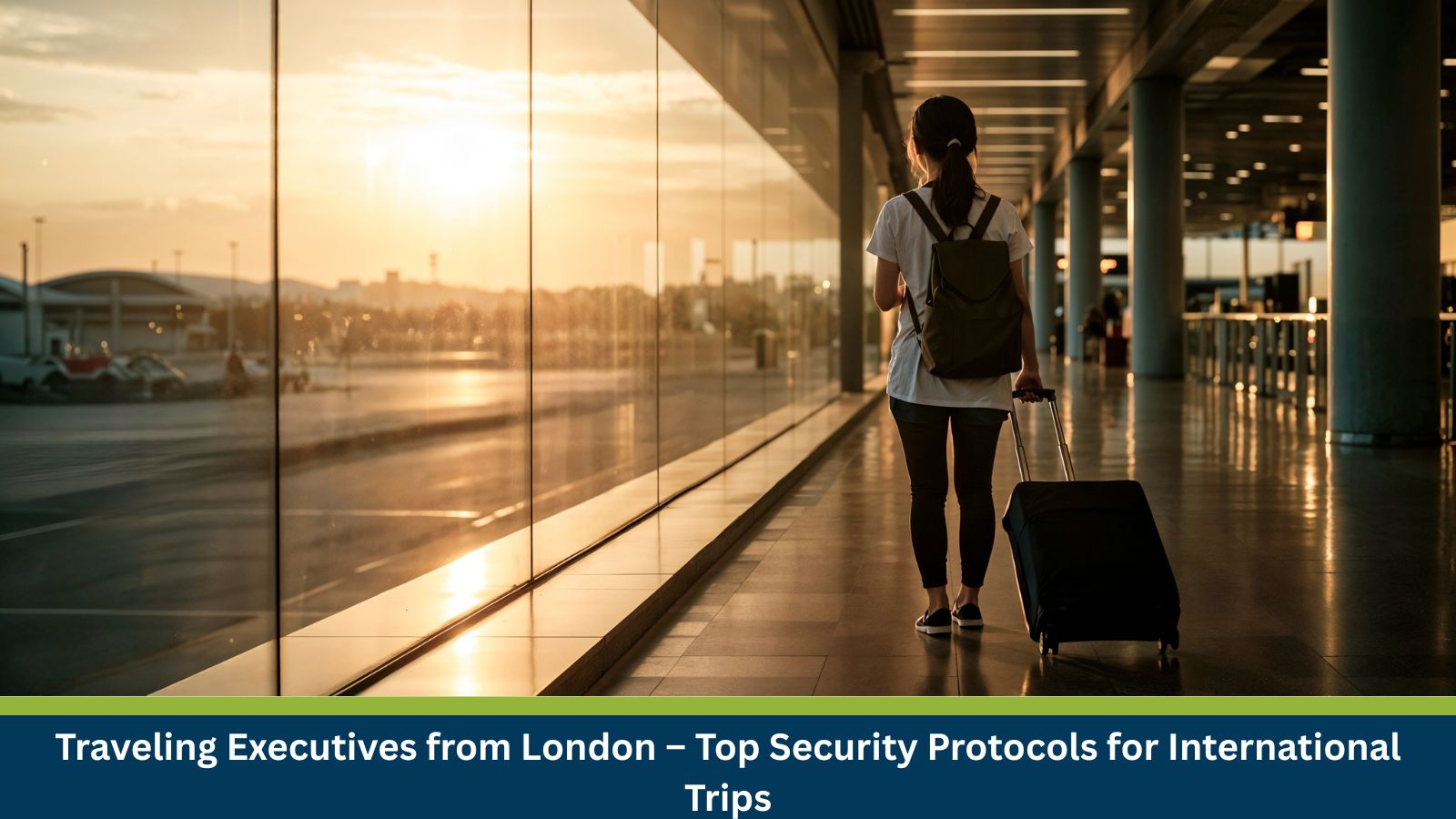London is a global headquarters city for finance, law, technology, and diplomacy. Executives departing from the UK are often tasked with traveling to volatile or high-growth markets, whether negotiating deals in Africa, managing operations in Asia, or speaking at forums in the Middle East. Yet, as executives leave the relative safety of London, they enter environments where political instability, terrorism, organized crime, and cyber espionage can quickly escalate into business disruptions.
For risk managers, developing Security Protocols tailored to London-based executives isn’t just about compliance, it’s about building resilience into global operations.
Establishing a Structured Framework with ISO 31030
The ISO 31030:2021 framework provides a systematic approach to travel risk management. For London executives, its importance lies in its adaptability: organizations can tailor Security Protocols for vastly different destinations, from high-threat environments in Sub-Saharan Africa to cyber-espionage-prone regions in East Asia.
By embedding ISO 31030, risk managers demonstrate due diligence and create defensible, standardized procedures that reassure boards, insurers, and stakeholders.
The Three Pillars of Executive Travel Security
ASIS International emphasizes three critical pillars for Travel Risk Management:
- Intelligence: For UK executives, this extends beyond Foreign Office advisories. It requires granular insights: Is a protest expected near the central business district of a destination? Is kidnapping risk rising along particular transport routes? Intelligence informs every decision, from hotel selection to scheduling.
- Mitigation: Executives must adopt measures such as using encrypted communications, traveling with vetted drivers, and choosing accommodations with layered security. These reduce exposure in high-risk regions.
- Contingency Planning: From emergency evacuation out of conflict zones to telemedicine access during health crises, having well-rehearsed response mechanisms is non-negotiable.
Embedding these pillars ensures London-based executives travel abroad with clarity and confidence.
Continuous Oversight and Dynamic Adaptability
Executives leaving London often cross multiple jurisdictions in a single trip. Risks can shift rapidly, consider sudden visa restrictions, political unrest, or escalating cyberattacks targeting executives’ mobile devices. Static security plans fail in such environments.
Instead, quarterly reviews of Security Protocols, coupled with real-time intelligence monitoring, help organizations pivot quickly. This adaptability distinguishes proactive risk management from reactive crisis response.
Executive Travel as a Lifecycle
Risk doesn’t begin at Heathrow and end on return; it follows a lifecycle:
- Pre-Trip: Destination-specific risk analysis, legal briefings, vaccinations, and crisis simulations.
- During Travel: Daily monitoring, secure logistics, and encrypted communications.
- Post-Trip: Debriefs that evaluate responses and capture lessons, feeding into continuous improvement of protocols.
This approach ensures organizations evolve with every journey
Security-First Culture for London Leaders
Executives often see themselves as seasoned travelers, but overconfidence is itself a risk. A security-first culture, led from the top, ensures that even small measures, like resisting public Wi-Fi in airports or declining unofficial transport offers, sare normalized. Leaders who embrace Security Protocols send a powerful signal across their organizations.
FAQs – Security Protocols for London Executives
Q1. Why do London executives need robust protocols abroad?
Because outbound travel often exposes them to risks far greater than those encountered in the UK.
Q2. Which standard should organizations use?
ISO 31030 provides globally recognized structure and defensible practices.
Q3. What are the top risks?
Cyber espionage, terrorism, political unrest, and organized crime.
Q4. How can executives reduce risks in volatile regions?
Through strong pre-trip intelligence, secure transport, and continuous monitoring.
Q5. Why is culture important?
Executives who model compliance reinforce organizational resilience.
Key Takeaway for Risk Managers
Executives based in London are global ambassadors of their firms, but they’re also high-value targets. By embedding ISO 31030 and ASIS’s three-pillar approach into Security Protocols, organizations can build resilience, protect talent, and secure global operations in an era of volatility and complexity.
From London to the World, Travel with Confidence
Executives departing the UK face diverse risks abroad—from terrorism and cybercrime to geopolitical unrest. MitKat’s risk consultancy team specializes in building Security Protocols that protect leaders beyond London, ensuring business continuity no matter where your teams operate.
Let MitKat safeguard your next international assignment.






